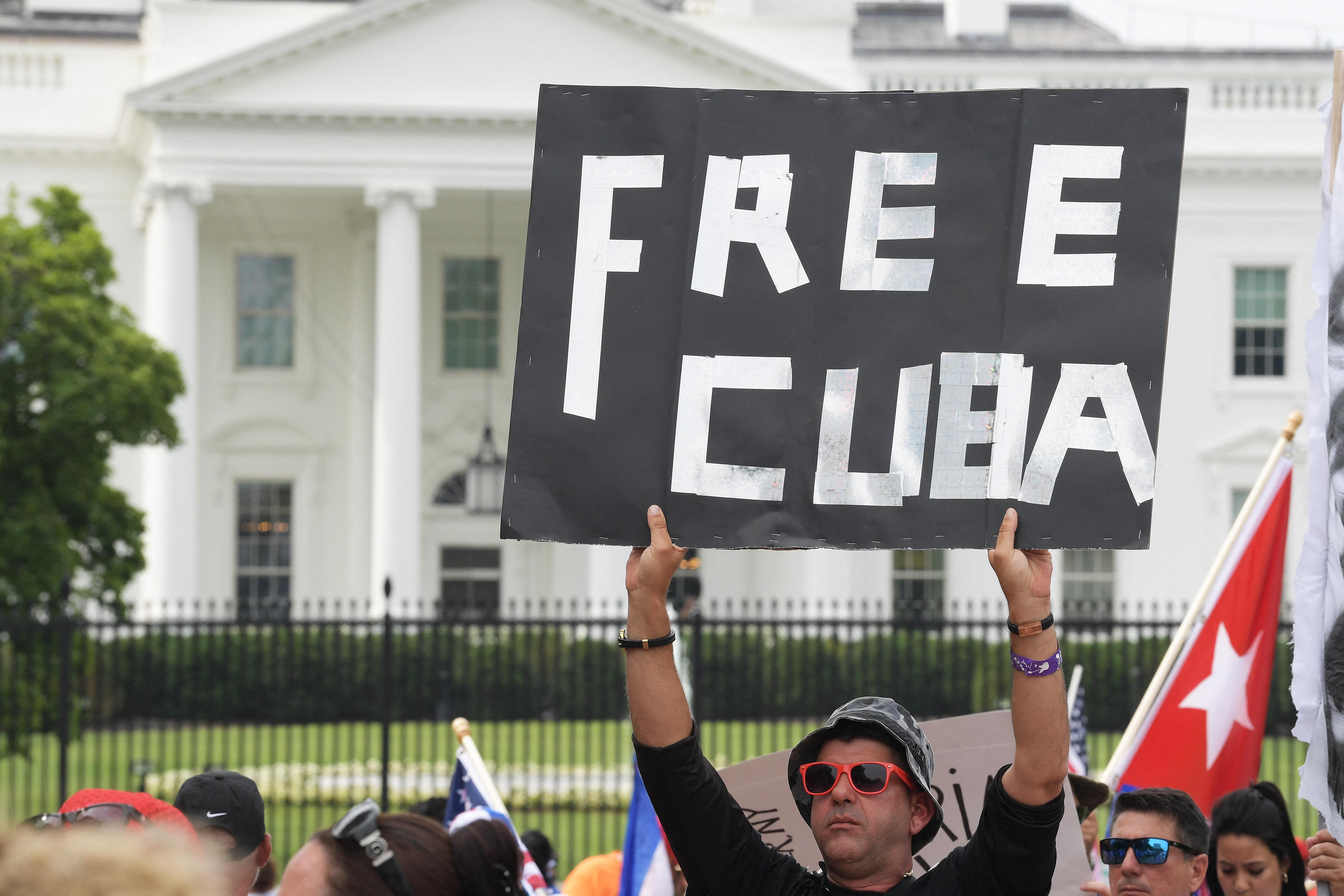The US Treasury announced Friday that the United States has imposed sanctions on Cuban police and its top executives in response to the Havana government’s crackdown on protesters. The sanctions were a response to “measures aimed at suppressing the peaceful and democratic demonstrations that began on July 11 in Cuba.”
There have been unprecedented protests in the Caribbean for decades in recent weeks. Thousands took to the streets to protest oppression and deprivation. The Cuban economy is heavily exposed to tourism, which has collapsed due to the coronavirus pandemic. The country has also been subject to US sanctions for decades. There is a shortage of food and medicine, and the epidemic is getting worse.
Overturned police car in Havana
Photo: YAMIL LAGE / AFP
The Cuban government has described the protests as violent riots that Havana says are instigated by the United States to divide Cubans. In conjunction with implementing the measures, US President Joe Biden held talks with Cuban-American leaders at the White House on Friday afternoon. At the meeting, the president said that new sanctions would be imposed on the Havana government’s crackdown on protesters. Biden also talked about instructing the Treasury and State Department to allow Americans to send referrals to Cubans within a month.
Washington also imposed sanctions last week. At the time, the Cuban Defense Minister and members of a special unit in the Ministry of the Interior were punished for their violent suppression of anti-government protests in July. The sanctions included, in particular, travel bans and freezing of US financial assets for those affected. Joe Biden also announced at the time that he would work with US partners in the region to pressure Cuba to release detained political prisoners, restore Internet access, and allow Cubans to enjoy their basic human rights.
The President stressed that sanctions for violations against demonstrators are only a first step. Washington will reinforce its embassy staff in Havana to continue providing consular assistance and support to Cuban NGOs. (MTI)












































